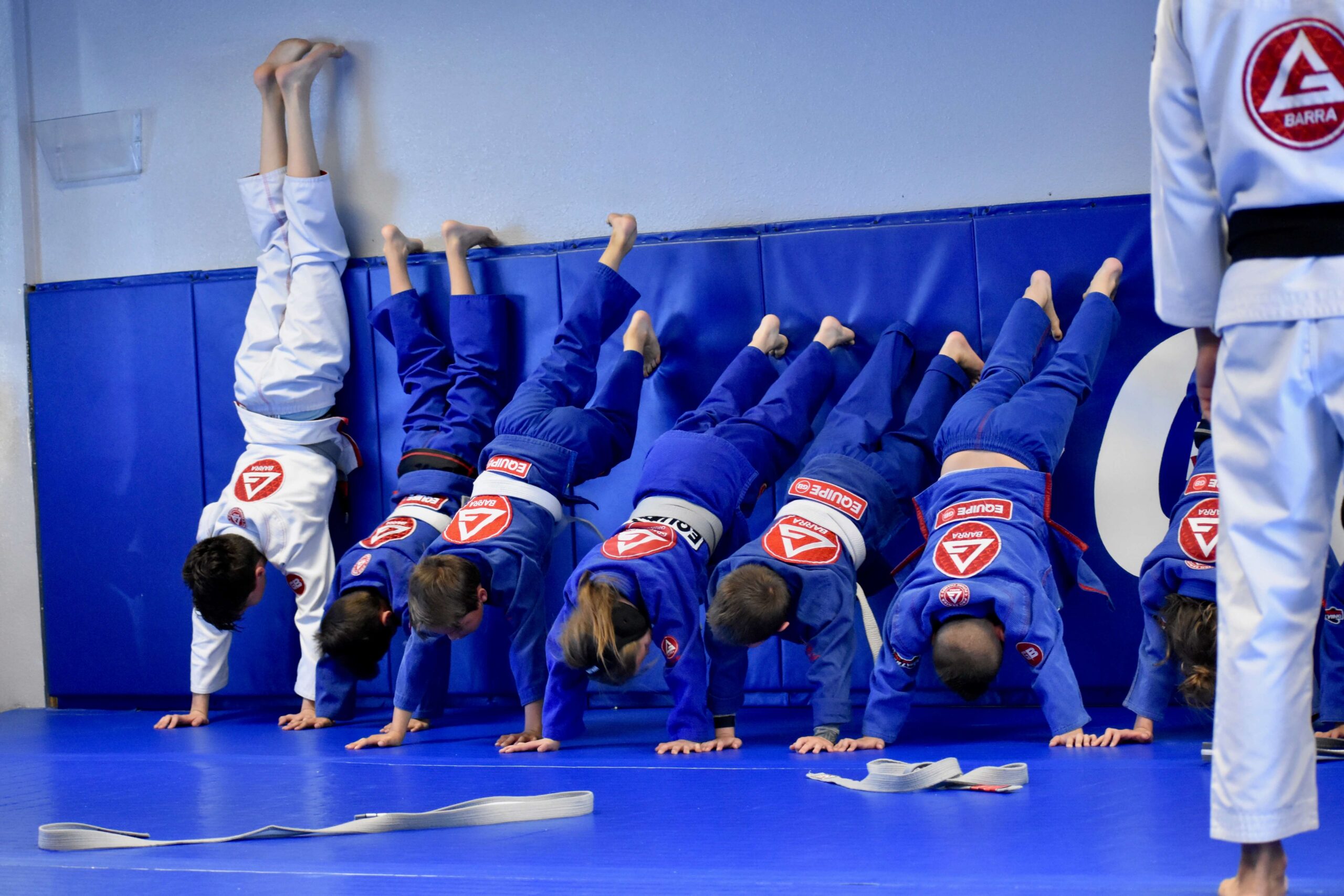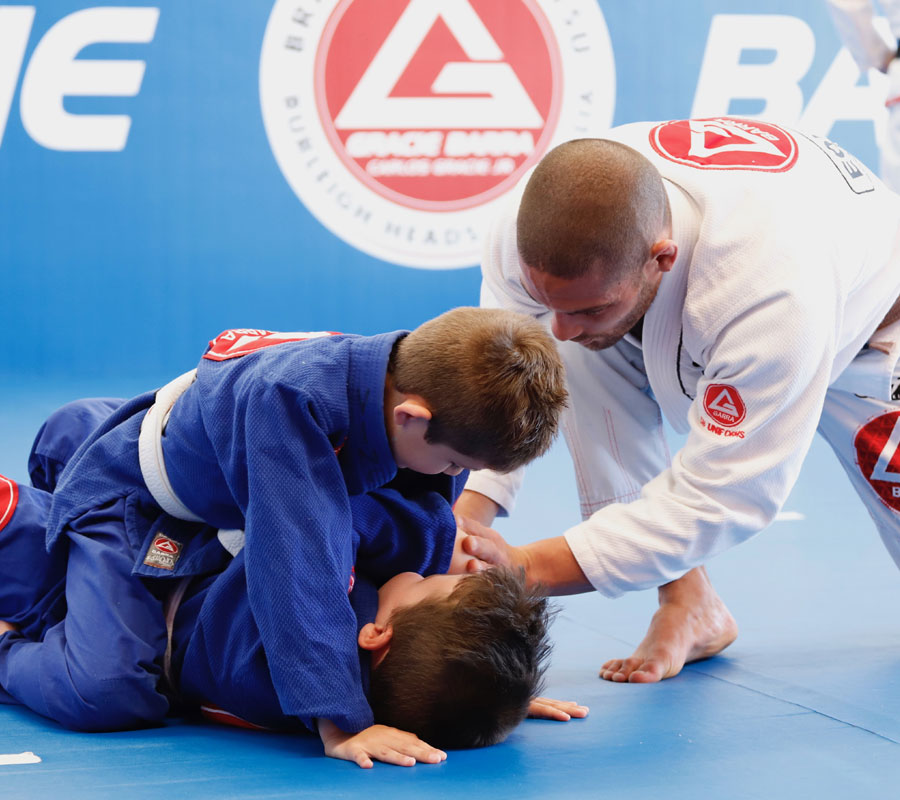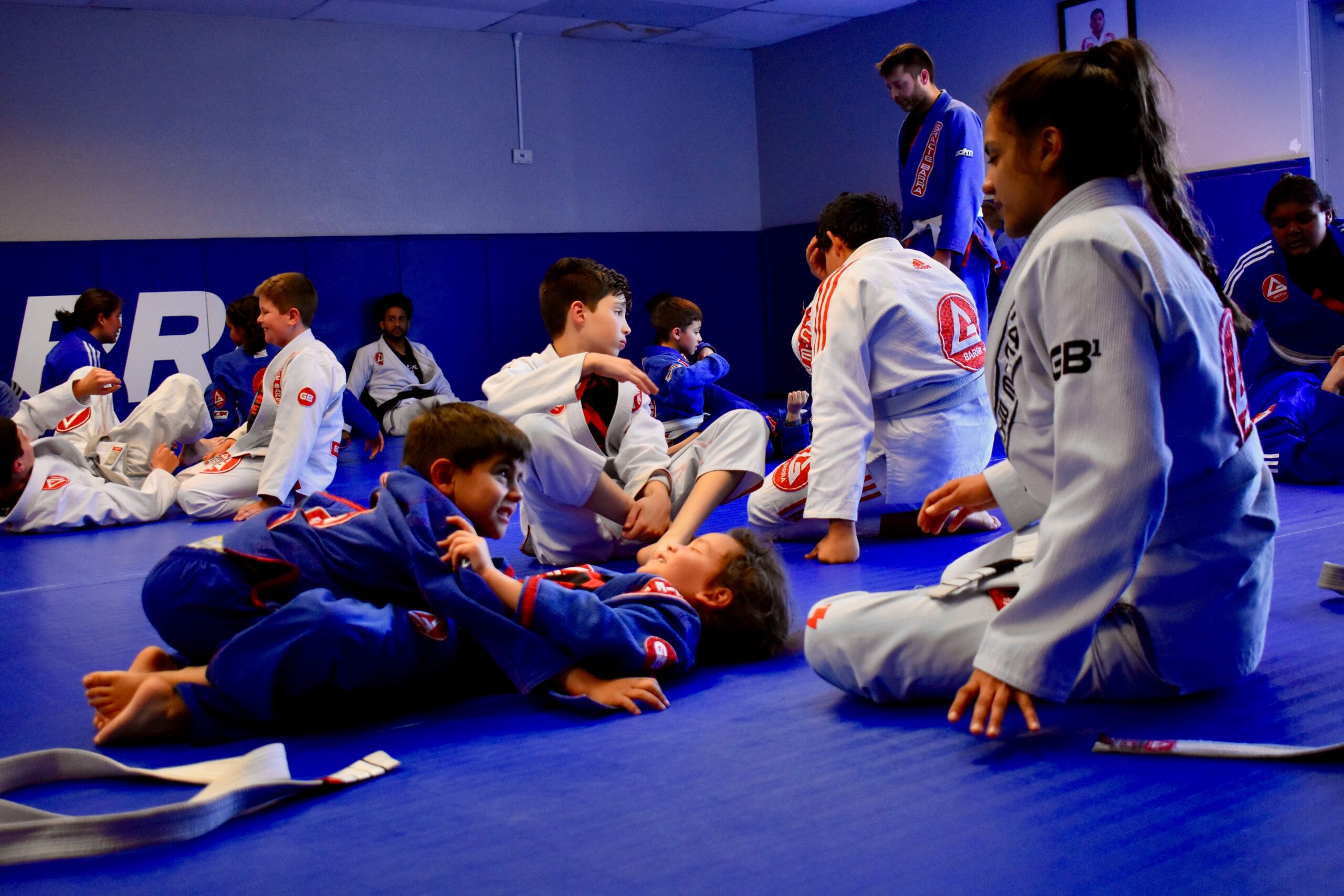
Muscular Development and Endurance:
Engaging in BJJ techniques and exercises targets various muscle groups, fostering children’s muscular development. Moreover, consistent training enhances endurance, priming children for more demanding physical activities.
Motor Coordination Improvement:
BJJ demands precise movements, refining fine motor coordination. Practicing rolling techniques, takedowns, and transitions sharpens motor skills, which can translate to enhanced performance in academics and other sports.
Flexibility and Balance Enhancement:
Regular BJJ practice boosts flexibility and balance. Dynamic movements during training sessions expand joint range of motion and fortify stabilizing muscles, fostering overall balance.
Stimulation of Bone Growth and Proper Posture:
BJJ movements strengthen bones and encourage proper posture in growing children. Routine practice aids in healthy bone development and mitigates future postural issues.
Cardiovascular Development:
BJJ training offers effective cardiovascular exercise for children. Continuous practice strengthens the heart and lungs, enhancing cardiovascular fitness and instilling habits of an active, healthy lifestyle early on.
Cultivation of Discipline and Self-Confidence:
Beyond physical gains, BJJ nurtures social and emotional growth. Consistent attendance and skill mastery foster discipline, while achieving proficiency boosts self-assurance and self-esteem.

Encouragement of Socialization and Respect for Others:
Within the BJJ training environment, children engage with peers of diverse ages and backgrounds, fostering socialization and instilling the value of respect for others. Through joint practice, bonds of friendship and camaraderie are strengthened.
Development of Concentration and Focus:
BJJ demands unwavering attention during training, refining children’s concentration and focus. Following instructor guidance and executing techniques with precision cultivate cognitive skills crucial for learning across various domains.
Promotion of Mental Health and Emotional Well-being:
Beyond physical gains, BJJ positively impacts children’s mental health. Regular practice alleviates stress and anxiety, fostering emotional equilibrium and an enhanced sense of well-being.
Conflict Resolution Skills Development:
During BJJ sessions, children learn to resolve conflicts peacefully and respectfully. Practicing personal defense techniques underscores effective communication and assertiveness, equipping children to address challenges constructively.
Encouragement of Persistence and Resilience:
BJJ represents an ongoing journey that demands persistence and resilience. Confronting challenges on the mat instills a resilient mindset, empowering children to tackle adversities in their daily lives.
Cultivation of Values and Sportsmanship Ethics:
Finally, BJJ nurtures fundamental values like integrity, humility, and sportsmanship ethics. Children internalize the significance of fair play, honesty, and adherence to rules, principles that extend beyond the mat and shape their conduct in all spheres of life.

In Summary:
Brazilian Jiu-Jitsu serves as a potent catalyst for the holistic development of children, nurturing their physical, mental, and social well-being. Beyond enhancing their physical prowess, BJJ instills vital values like discipline, respect, persistence, and sportsmanship ethics. Through participation in BJJ classes, children not only gain self-defense skills and physical conditioning but also lay a robust groundwork for success in all facets of life. Thus, investing in BJJ training for your children not only offers a rewarding physical activity but also equips them to become responsible, confident, and respectful adults.







